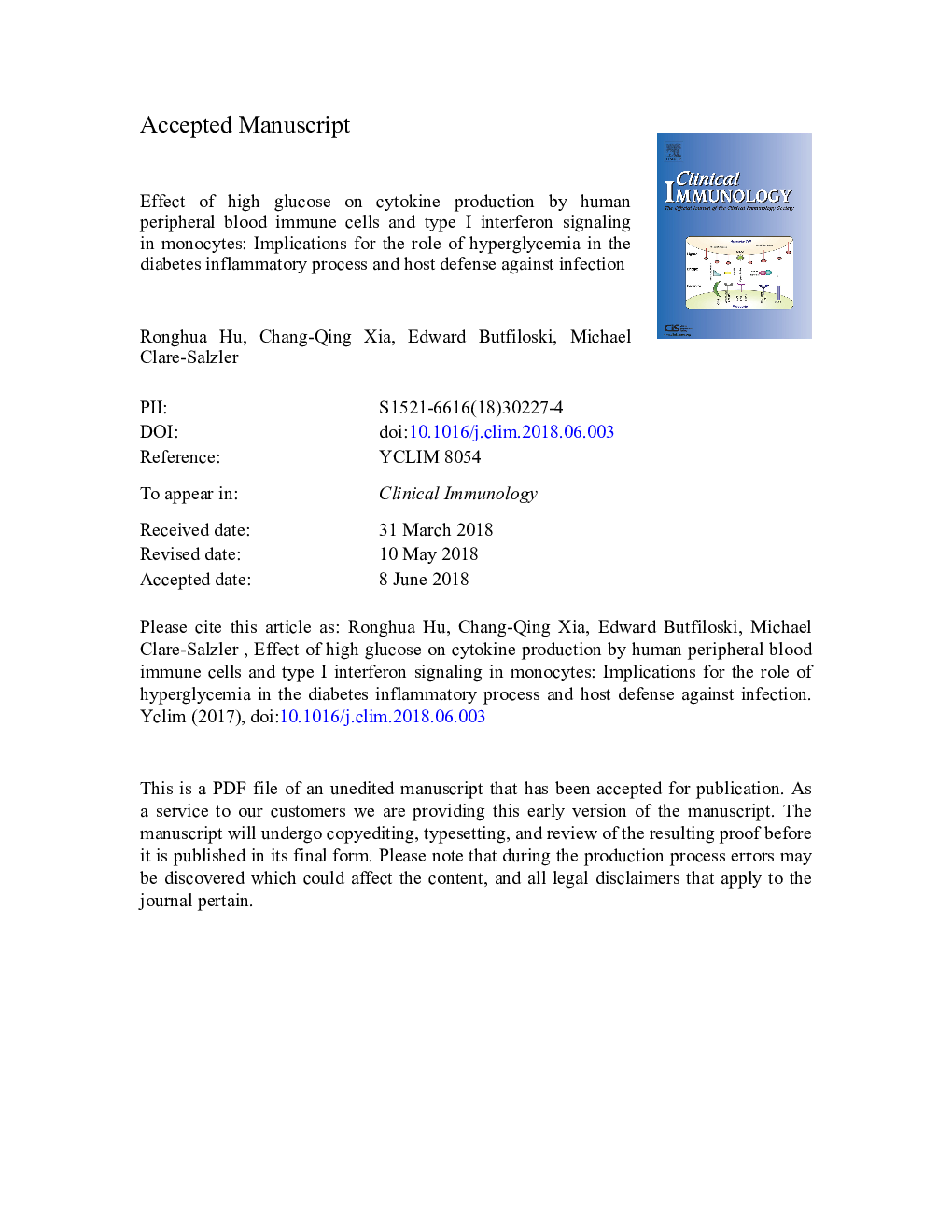| Article ID | Journal | Published Year | Pages | File Type |
|---|---|---|---|---|
| 10022854 | Clinical Immunology | 2018 | 35 Pages |
Abstract
The major metabolic feature of diabetes is hyperglycemia which has been linked to the diabetes inflammatory processes, and diabetes-related vulnerability to infection. In the present study, we assessed how glucose affected PBMCs in type I interferon (IFN) production and subsequent signaling. We found that the moderately elevated glucose promoted, and high glucose suppressed type I IFN production, respectively. Pre-exposure to high glucose rendered monocytes more sensitive to IFN-α stimulation with heightened signaling, whereas, instantaneous addition of high glucose did not exhibit such effect. Consistent with this finding, the mRNA levels of IFN-α-induced IRF-7 in PBMCs were positively correlated with HbA1c levels of diabetes patients. Additionally, we found that high glucose promoted the production of other proinflammatory cytokines/chemokines. This study suggests that hyperglycemia may affect the inflammatory process in diabetes via promoting proinflammatory cytokines, as well as the host defense against microbial infections through impeding type I IFN production and signaling.
Related Topics
Life Sciences
Immunology and Microbiology
Immunology
Authors
Ronghua Hu, Chang-Qing Xia, Edward Butfiloski, Michael Clare-Salzler,
